Making your own skincare may seem daunting, but it isn’t as hard as you might think. In fact, with just 5-ingredients, you can replace your entire skincare routine with homemade products using natural skin care ingredients.
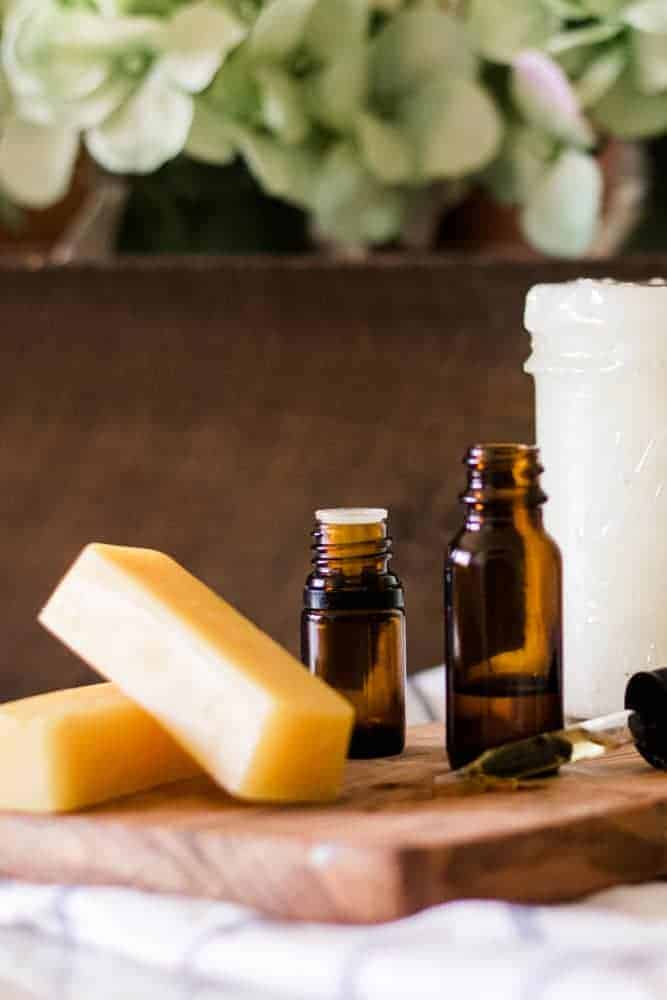
When I look at a DIY recipe or even a food recipe, for that matter, if I see a long list of ingredients, I generally tend to shy away from it.
I don’t want to go out and buy a bunch of ingredients that I am only going to use a little bit of, and the rest of it’s going to sit on the shelf; forever.
I personally like to keep things simple and quick at a low cost.
When I started my blog, I knew I wanted to keep things simple, but obviously, I still wanted awesome products that worked!
Several years and hundreds of recipes later, I have found out that there are 5 common ingredients in nearly all skin care products.
It may seem like a stretch, but it is true!
With shea butter, coconut oil, beeswax, vitamin E oil, and essential oils, you can easily make lotions, body butters, face serums, creams, moisturizers, and so much more!
5-Ingredients to Make Your Own Skincare
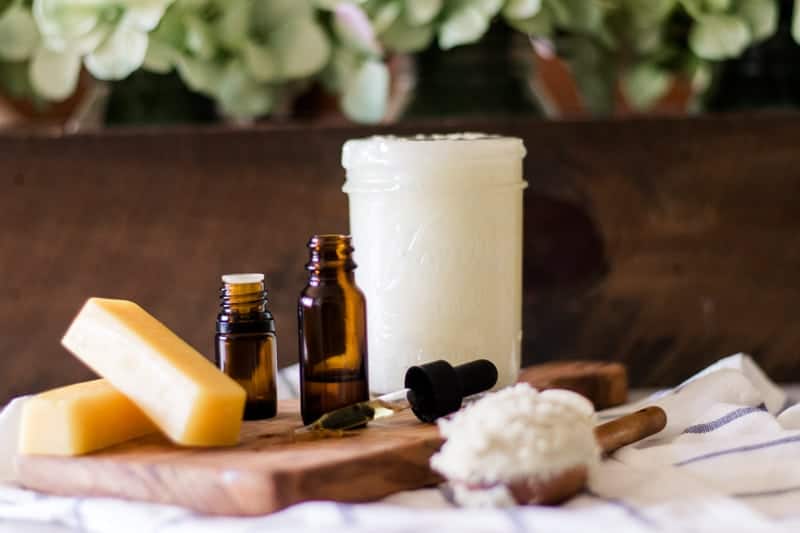
Shea Butter
This post contains affiliate links, which means I make a small commission at no extra cost to you. As an Amazon Associate, I earn from qualifying purchases. Get my full disclosure HERE.
First up on the list: shea butter. Shea butter has some amazing properties for the skin, has a beautiful aroma, and it is inexpensive.
In any recipe, shea butter can be replaced with cocoa butter or mango butter. I love all three kinds of butter and like to experiment with different combinations.
Shea butter comes from the nut of a karité tree. The trees grow in the west and eastern parts of Africa.
Shea butter is often used in skin care products, hair care products, and is used occasionally in some food recipes.
It has a high concentration of fatty acids and vitamins, along with anti-inflammatory properties.
Shea butter alone can make the perfect face moisturizer as it is very gentle and safe for sensitive skin.
Benefits of Shea Butter
- Soften skin
- Lighten skin
- Tighten skin
- Aids in tissue regeneration
- Reduces fine lines
- Natural UV protection (about 6 SPF)
- Eliminates wrinkles
- Boosts production of collagen
- Very moisturizing
- Fade dark spots
Coconut Oil
Coconut oil is a known superfood and has taken over the skin care and hair care shelves.
It can be found in almost all cosmetics, creams, lotions, shampoos, you name it, and coconut oil is probably in it!
Coconut oil can become a liquid or a solid, depending on the temperature of where it is stored. It stays a solid at temperatures below 76°F and a liquid above 76°F.
This makes coconut oil a very crucial ingredient for the texture of your homemade product.
Fractionated coconut oil goes through a distilling process, allowing for the separation; and ultimately the removal of several long fatty acids.
As a result, it remains a liquid regardless of the temperature; therefore, it can not be substituted equally in recipes as it will change the texture.
Coconut oil is extracted from the coconut milk found inside of a coconut.
Benefits of Coconut Oil
- It contains healthy fatty acids
- Burns fat
- Boosts heart health
- Anti-bacterial
- Anti-viral
- Anti-fungal
- Improve the appearance of skin and hair
- Reduces signs of aging
- Moisturizing
- Protects skin
- Soothes dry, itchy skin
Beeswax
Just like shea butter and coconut oil, beeswax has amazing properties for the skin. Beeswax hydrates the skin and helps with many skin ailments.
In addition, beeswax can make your skincare products waterproof.
If you can find beeswax from a local beekeeper, your beeswax will have even more great benefits.
Beeswax has been used in skincare for hundreds of years and is often found in modern skin care products too.
Beeswax can be replaced with soy wax in recipes to make a vegan option.
Though soy wax doesn’t have all of the same wonderful benefits, it will still allow for the same texture and waterproof properties.
Benefits of Beeswax
- Creates a protective layer on the skin
- Hydrate the skin
- Natural exfoliator
- Removes dead skin
- Fade fine lines and wrinkles
- Soothes dry, damaged skin
- It helps soothes burn skin
- Anti-Inflammatory
- High in vitamin A
- Clears skin blemishes
- Helps with eczema and psoriasis
- Kills infection and bacteria
Vitamin E Oil
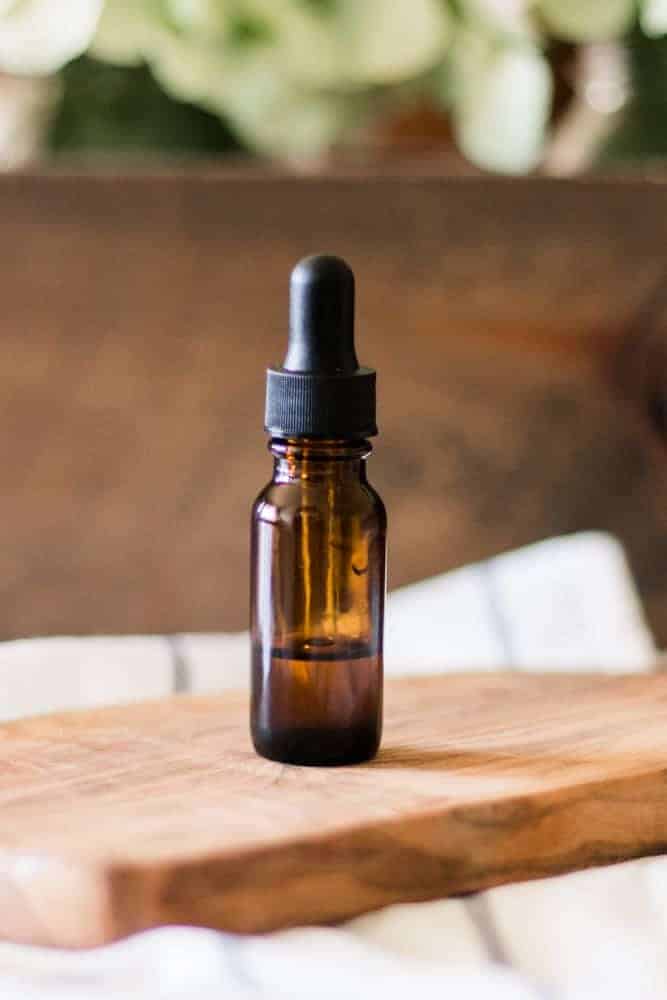
Vitamin E oil is an antioxidant that is commonly made out of vegetable oils. It is known for the benefits it has for the skin and can be used to preserve your products longer.
Vitamin E oil can come in a capsule or in drops. If you have a capsule, you can open it up and pour the oil into the skin care product you are using.
I prefer to use a dropper to make it easier to get the desired amount of drops.
Benefits of Vitamin E Oil
- Heal Wounds
- Reduce Scars
- May help with preventing skin cancer
- Reduce itching
- Help with eczema
- Reduce signs of aging
- Soothe sunburns
- Nourish and moisturize skin
Essential Oils
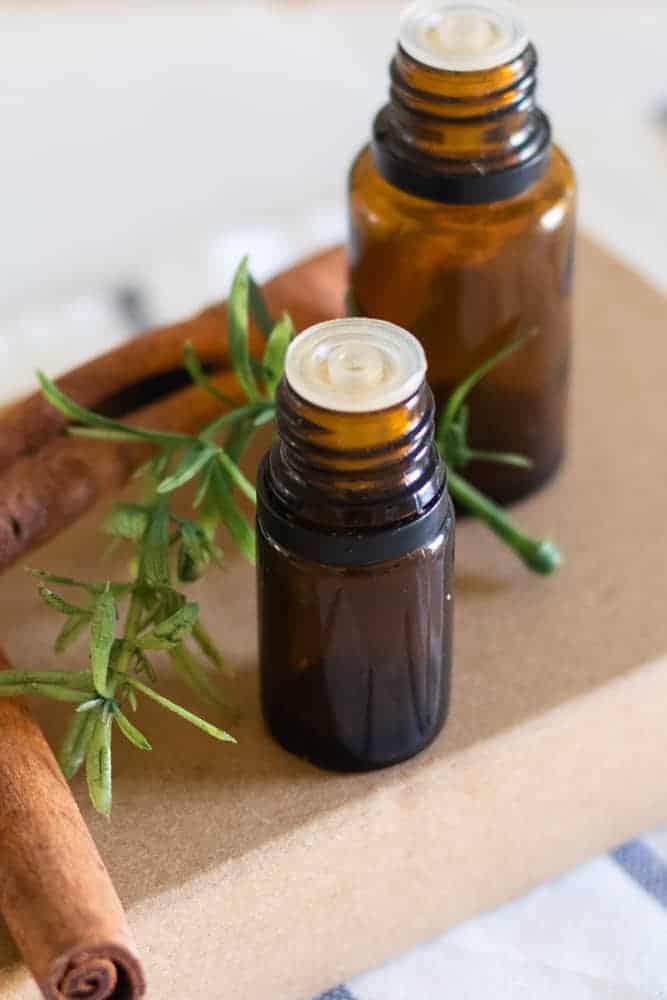
Last on my list is essential oils. Essential oils are natural aromatic compounds found in the bark of trees, leaves of plants, petals of flowers, or the peel of a fruit.
They are well known for their benefits for the skin and will give your homemade skincare a beautiful scent.
Certain essential oils are better for the skin than others and some need to be used with caution.
For example, oils like cinnamon, clove, oregano, and ginger are known as hot oils and can burn the skin if not diluted properly.
Other essential oils such as lavender, frankincense, and chamomile are very gentle and safe for neat application. If in doubt, dilute all essential oils before applying them to the skin.
Best Essential Oils for the Skin
- Lavender
- Frankincense
- Tea tree
- Roman Chamomile
- Sandalwood
- Cedarwood
- Rose
- Jasmine
- Magnolia
Benefits of Essential Oils for the Skin
- Reduce signs of aging
- Reduce skin imperfections and scars
- Promote collagen production
- Tighten skin
- Lighten age spots and sun spots
- Moisturize and hydrate
- Promotes clear, healthy skin
- Cleansing and purifying
Natural Ingredients for Skincare
When it comes to sourcing your skincare, it is best to look for pure ingredients that do not contain any synthetic adders or fillers.
You also want to look for organic ingredients and, if possible, source locally.
Check labels and be sure that your ingredients are free from artificial fragrances, synthetic colors, and dyes. Look for words like unrefined, organic, raw, and fair trade.
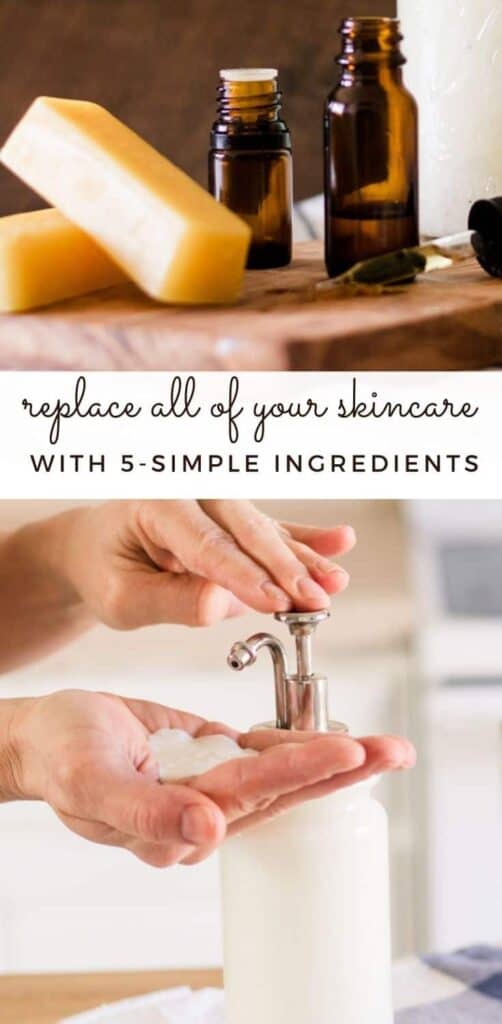
Natural Products for Skincare
Once you collect shea butter, coconut oil, beeswax, vitamin E oil and essential oils, you will be able to make all of your skin care from scratch.
It doesn’t have to be hard or expensive to make natural skin care products.
The other great thing is that the recipes don’t have to be exact and they are very forgiving. So the best way to get started is by trial and error.
Don’t get overwhelmed and think you have to do everything overnight; take one product at a time, and slowly you will be able to replace all of your skin care in your home with more natural and healthier homemade options.
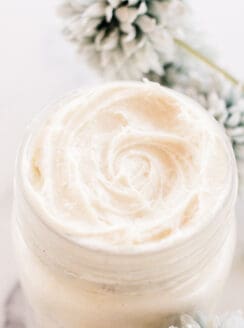
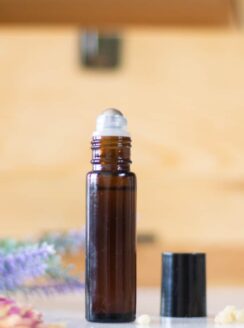
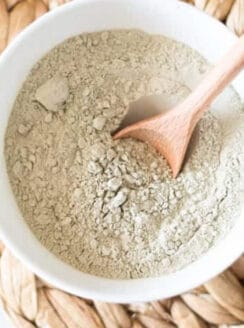
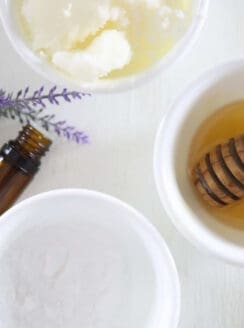
Missy says
love your recipes, it’s fantastic. I have experimented with you body butter on occasion with different doTerra oils, my friends love it. I wish I could make them full time.
Laura says
Thank you so much, happy to hear that!!
Sally Armfield says
I love your whipped body butter. Can I add zinc oxide to it to help protect from the sun as I use it on my face.
Laura says
I am so glad you love it! Yes, you can!
Barbara says
Oh Girl! So glad I found you and this list of the best skin products!! This will make my learning curve less curvy(: